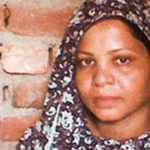By Robert Nicholson – Providence
As Christians we care about our brothers and sisters in the Middle East, and because we care about Middle Eastern Christians, we care deeply about the Copts, the largest single Christian community in the region. The Copts are not only a large community but also an ancient one. For us living in the West, they are a window into a forgotten world.
Many of the young leaders coming through our various Philos Project programs think of the Copts as just another Christian denomination—you have your evangelicals, your Roman Catholics, your Orthodox, and your Copts (actually that’s a generous description since most of them think Copts are some kind of Catholic). We go out of our way to explain to them that “Coptic” isn’t just a denominational identity; it is a civilizational identity.
To be Coptic is to belong to an ancient civilization that ruled Egypt for thousands of years before the arrival of the Arabs. Copts are not just “minorities”—to use an American analogy. They are much closer to the “Indians” of Egypt and have a completely different culture that predates the current culture and therefore deserve not only equal rights, which is what every citizen of Egypt deserves, but special recognition as Egypt’s indigenous people—and, I would add, special respect. Most Copts belong to the Coptic Orthodox Church, but Copts also identify as Catholic and evangelical too. They are a nation, a culture, a civilization. If we Christians in the West want to stand in solidarity with them, we need to understand the full significance of who they are.
Everybody wants a silver bullet, a piece of legislation or a policy that will fix the plight of the Copts. But it took us 1,400 years to get into this mess, and it’s going to take us time to get out. I for one am less interested in being part of a political process than I am in starting a cultural movement, a movement that starts with the power of the Gospel, builds upon shared values that flow from it, and bridges the relational gap between East and West so that Christians on both sides can stand with each other in a moment of crisis for both sides.
The Copts are facing an existential crisis in Egypt, but Western Christians are facing an existential crisis as well—a different kind of crisis, yes, a crisis of identity, a crisis of forgetting our faith and forgetting especially where it comes from. I believe that America’s struggles in the region have as much to do with rising Islamic identity in the East as they do with collapsing Christian identity in the West. How can we expect to understand the motivations of people of faith if we are not people of faith ourselves?
Connecting Western Christians with Copts isn’t just good for the Copts; it’s also good for us. We need to rediscover our first love, the love that Copts have demonstrated time and time again that they are willing to die for. What I’m talking about is a renaissance of our shared Judeo-Christian heritage.
The path is not easy. We are divided by doctrine and denomination. We are divided by distance. Some Western Christians are oblivious to the suffering of the Copts, even in recent days, and seem more interested in forging relationships with Egypt’s political leaders than with Egypt’s indigenous Christians.
As someone who hopes to train and send out hundreds and God-willing thousands of young Christian leaders to work on these issues, I see it as my job to educate them on the realities that Copts are dealing with every day; to teach them a respect for Coptic culture and history; and also to help them stand with Copts without turning Islam into the enemy that must be castigated at every turn.
I disagree with Islam—of course I do, I’m a Christian—but I respect Islam as a religion and as a civilization. More than that, I respect the many millions of Muslims who want Copts and other Middle Eastern Christians to stay in their homeland as active and equal citizens. Those Muslims, many of whom consider themselves to be observant and faithful, are part of the solution. They need to be part of this story.
Standing with Copts cannot be the pretext for the next crusade. We must pray for prudence, wisdom, love, and discernment as we navigate the thin line between good and evil.
But raising up the next generation of Western leaders is not enough. Even more important is helping to empower the next generation of Coptic leaders. I can’t change Egypt; I’m not Egyptian. None of the young Christians who are part of the Philos network will change Egypt. Our job is to identify and empower those young Egyptians who want to change their society from within. That’s what I call real transformation: local, organic, rooted in the language and culture of the country.
The Philos Project, which I direct, is currently building a new project to empower young Copts through leadership training and immersive experiences that will broaden their horizons, expand their circle of relationships in the West, and help them think clearly about how they can lead in their community and work for positive change inside Egypt. This is an ambitious project, and it will take time to see the fruit of it. But if you’re a Christian, you believe in the ability of the individual, the small group, the committed band of people bound by a common vision to turn the world upside down. That’s how Christianity first spread: twelve guys with a message were willing to take it to the world on pain of death. I think that’s how we’re going to see change come for the Copts, too: a small group of people living in both East and West who are bound by a common vision and willing to take risks in the name of pluralism and peace.
And that brings me to the Coptic martyrs. What does it mean to be a martyr? What relevance does it have for us living here in the United States?
I can say in all honesty that martyrs make me ashamed when I think of their testimony of following Christ against all odds, against the grain of prevailing culture, even when it means losing everything. Thinking of the many thousands, the many hundreds of thousands, and perhaps millions of Coptic martyrs over the years makes me feel ashamed for us Christians living in the West and all over the world who have not yet recognized that the message of Jesus Christ is one that will bring suffering.
We need suffering. But we don’t celebrate suffering for its own sake. We are not masochists. We need suffering that counts.
Martyrdom means suffering for a cause, a vision, a message. These days we see hordes of martyrs willing to die for an interpretation of Islam that promotes tyranny, misogyny, bigotry, and supremacy. Where are our martyrs? Who among us is willing to die, and not just passively or accidentally but actively, for the sake of the opposite message? Who of us is willing to emulate those martyrs of the past and stand up to lead when the surrounding culture is against us? And who of us is willing to do that in the spirit of love rather than spite?
May the testimony of our Coptic fathers stand witness before Christians living in both East and West. May we see in their lives not just a passive resignation to death but an active desire to change societies with a new vision, a vision that will draw all those who are waiting for change and rally them under a common message that will push back against the culture of death that holds so many men in its grip. This active desire to change things sometimes means death, yes. But if death is coming, we should work hard to ensure that death is as meaningful as possible.
The question isn’t whether there will be more martyrs. There most certainly will be. The question is what those martyrs will die for and how impactful their deaths will be.
We are at the beginning of a long road, this reconciliation between East and West. But I believe that this is work that will transform both in the spirit of the Kingdom of God. That’s why I’m here today. That’s why I stand not only with Copts and Coptic solidarity, but with all those individuals and organizations who share this vision and are prepared to pursue it with the zeal of a martyr.
Robert Nicholson is the executive director of the Philos Project and the co-editor of Providence.
_______________________
Photo Credit: St.Mark Church, Heliopolis. By Andrew A. Shenouda, via Flickr.





